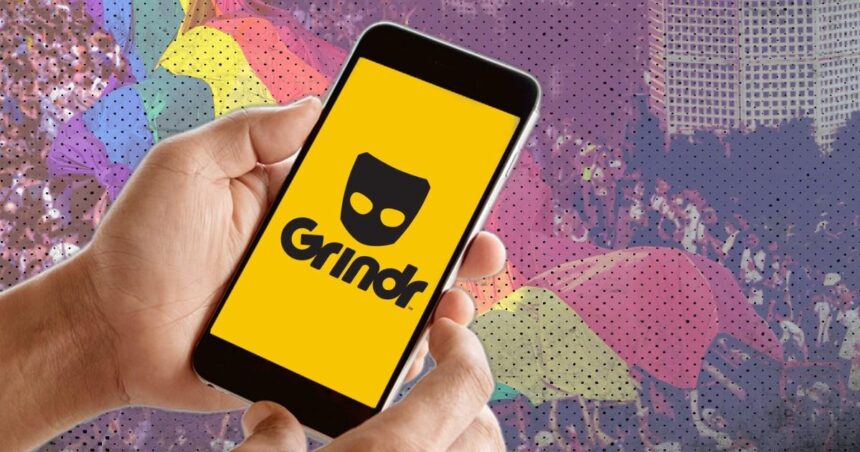
In 2014, Chris* did what millions of people had done before him: he downloaded Grindr and became part of an online community full of tiled torsos and gray silhouettes.
However, some 10 years later, Chris is one of 1,500 people who have taken legal action against the world’s largest dating app for LGBTQ+ people.
A claim filed in London’s High Court earlier this year accused Grindr of sharing users’ intimate information with third parties for profit.
For Chris, this includes name, age, location, physical description and medical information such as HIV status.
‘How can you treat users like this?’ asked Chris, who spoke to Metro.co.uk under a pseudonym as an anonymity order has banned the claimant from revealing his real name.
“I trusted this app, it had a huge impact on the gay community and now it feels like Grindr has betrayed that trust,” he said.
In response, Grindr, advised by Cooley’s law firm, has denied selling its users’ HIV data. A spokesperson said it was ‘inaccurate’ to say the app shared the information ‘for advertising purposes’.

The Los Angeles-based company has 13 million monthly users – around 924,000 in the UK – and uses GPS to determine the location of people within a 100m radius.
Profile fields include age, height, ethnicity and current HIV status, while users even get reminders to get STI tests and the app offers free ads for HIV testing services.
‘Grindr is a very important place for the gay community,’ explains Chris. ‘When the app was released it changed how dating worked.
‘You no longer have to go to gay bars and seeing who else is in your area is a whole new experience.’
However, according to the class action law firm Austen Hayes, before April 3, 2018, and between May 25, 2018, and April 7, 2020, Grindr ‘used users’ personal and sensitive data’ to profit with the company’s third-party advertising without their consent.
The lawsuit form, shared with Metro, states: ‘The plaintiffs allege that, without their request, knowledge or consent, the defendants used secret tracking technology in the Grindr app to collect and share various categories of personal data, including highly-sensitive personal data , with a third party.’

In short, Grindr has breached UK data privacy laws, according to Chaya Hanoomanjee, managing director at Austen Hayes who led the lawsuit. And now, the plaintiffs are seeking thousands of pounds in damages.
“This revelation has caused great distress, and Grindr must be held accountable for its failure to respect and protect its users’ privacy,” he told Metro.
According to Austen Hayes, Grindr shares sensitive user information with app analytics companies Apptimize and Localytics.
‘This will allow an unlimited number of third parties to target and/or manage advertising to users,’ the law firm said, adding Grindr. can profit from this move.
For many queer people, privacy is very important. Not everyone is open about their sexuality or gender identity; For some, it can cost them their lives.
‘I’m out, but I know a lot of gay people who aren’t and I worry about them,’ Chris said.

‘Many still don’t want to open up about their sexuality, and the idea that their data is now in the hands of complete strangers is very worrying.’
The issue first came to light in 2018 when Buzzfeed News reported that Grindr was sharing users’ HIV status with Apptimize and Localytics. In response to the allegations, Grindr said it does so by ‘selecting trusted contractors’.
“We have removed data on HIV status from Apptimize and Localytics,” the company added.
However, in 2020, the Norwegian consumer protection agency filed a complaint against Grindr for illegal data mining. The following year, the Norwegian Data Protection Authority fined the app 65 million Norwegian kroner (approximately £4.8 million), for breaching privacy rights after failing to comply with the GDPR between 20 July 2018 and 8 April 2020.
The platform has a ‘take it or leave it’ approach to consent, explained noyb, a European privacy NGO that supported the complaint. He added that Grindr has shared users’ intimate details with 19 third-party companies.
This includes MoPub, the mobile advertising platform used by X, then known as Twitter, which has the right to share information with 170 partners.

Grindr again emphasizes its work with third parties, such as software developers and analytical services, to improve the platform. Any HIV data provided by the user and shared with third parties is encrypted.
Ads for HIV treatment and other drugs are shown to users regardless of their medical status.
Following the Norwegian case, UK data regulators ‘reprimanded’ the app in 2022 for ‘failing to provide effective and transparent privacy information to UK data subjects about the processing of their personal data’.
Now, Hanoomanjee is asking Grindr users to join Austen Hayes’ claim. To be eligible, people must have used the free version of the app between December 2016 and April 2020
‘All clients in this statement will remain anonymous following a court order, so there is no fear of these details becoming public or shared with others,’ said Hanoomanjee.
‘The legal process may take years, so we hope that Grindr decides to act responsibly and admits wrongdoing to avoid ongoing court proceedings.’

Chris said he signed up after seeing an advertisement for the Austen Hayes claim on Facebook, and had no second thoughts about doing so.
‘Knowing that my details were being passed on to another company, possibly for profit, made me immediately wonder if I could take legal action,’ she recalls.
Now Chris isn’t sure if he’ll ever use — or trust — Grindr again.
“Although the app is very important, I may have to give up using it altogether,” he said. ‘It plays a big role in society and it’s important to me, but I reluctantly have to remove it.’
A spokesperson for Grindr told Metro.co.uk: ‘Grindr has never sold or shared user-reported health information, including HIV status, for advertising purposes, as is inaccurately suggested in this lawsuit.
“As we will show in the response, this statement is based on the practice of basic mischaracterization from more than four years ago, before the beginning of 2020.
‘Users, in this case, appear to have been misled by this mischaracterization, which is a matter of regret, and we remain committed to protecting user data and complying with all applicable data privacy regulations.’
Apptimize and Upland have reached out for comment.
*(not his real name).
Contact the news team by emailing webnews@metro.co.uk.
For more stories like this, check out our news page.
MORE: Bookeller ‘fired from Waterstones’ after row with author over trans rights
MORE: Netflix viewers ‘lose their minds’ as ‘heartwarming’ same-sex dating show makes history
MORE: As a trans person, I fear the Labor government
Get the latest must-know news, great stories, analysis and more
This site is protected by reCAPTCHA and Google’s Privacy Policy and Terms of Service apply.




